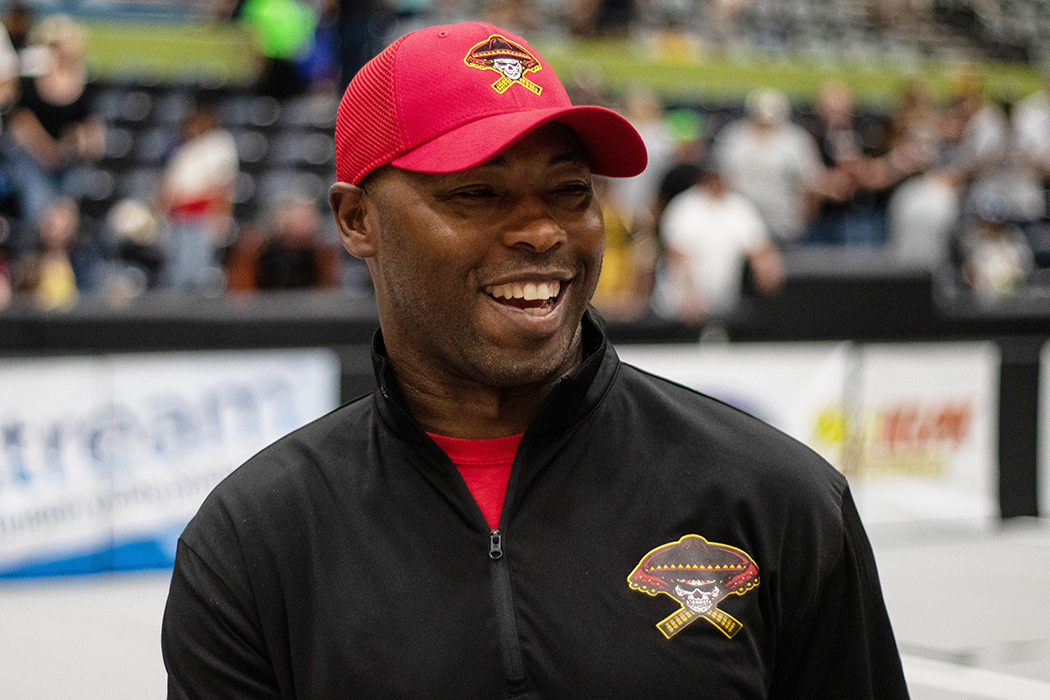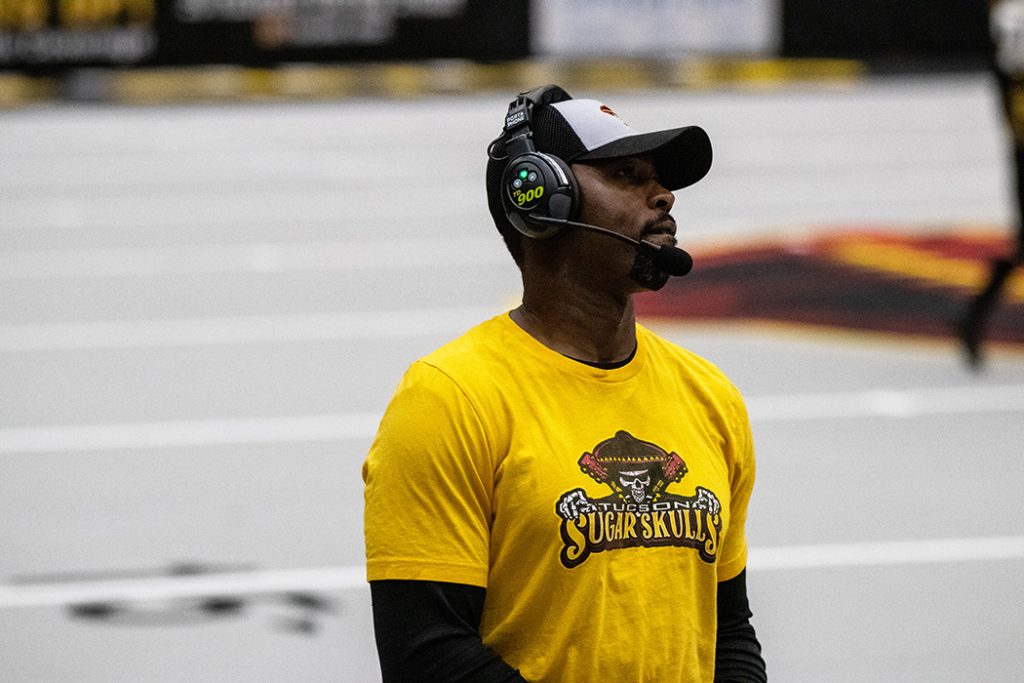When he visits his old stomping grounds in Lake Highlands every summer, Marcus Coleman sees all the familiar, friendly sites — the houses of his longtime friends’ parents, the old high school, Wildcat-Ram Stadium.
But what he doesn’t spot are the dreams of his standout NFL career. That’s because, despite his undeniable football acumen, Coleman had his eyes set more on the Olympics.
“I had aspirations, and I truly believe I could’ve made it,” Coleman says. “But with the way football was tugging at me, it was just too hard to put the time in on the track.”
Truly talented are those faced with the dilemma of which paved, prosperous path to travel to athletic stardom. Though he set Lake Highlands High School records, won the prestigious Texas Relays and, as a senior in 1991, was one of the nation’s top eight track stars in the triple jump, football had bigger, better plans for Coleman.
“I really loved track, and I still wonder what I could have done had I put everything into it,” Coleman says. “But I think everything turned out OK. Football was a good choice for me.”
Here’s validation: A scholarship to Texas Tech. An 11-year career in the NFL in which he played for three teams, including the Dallas Cowboys. More than $30 million in contracts. And, these days, a job coaching the game he hopes to ride back into the big time.
“I’d love to coach at the college level, even the NFL,” he says. “I didn’t want to be a coach immediately because, honestly, I saw all the long hours my coaches put in. But I tried some radio after I retired, and this and that. The football spark came back. I had a heart-to-heart with myself and realized football was my itch that I had to scratch. I love it. I want to do it at the highest level possible. That’s my goal, to get outdoors again.”
Which means, of course, for now the 46-year-old Coleman is instead indoors, as the head coach of the Tucson Sugar Skulls.
Before Coleman could blossom into a coveted head coach, he had to excel as a player. That commenced at Lake Highlands High School, where Coleman was an all-district defensive back that led the Wildcats into the playoffs three consecutive years, only to lose a couple of heart-breaking games to annual powerhouse David W. Carter High School.
“We were really good,” Coleman remembers. “Losing to Carter in the playoffs was no shame.”
At Tech, he was the first to play the now-esteemed “Raider” position – a combination linebacker/safety given the freedom to line up wherever he pleased and saddled with a sole objective of following the football. Coleman started 36 consecutive games, returned four interceptions for touchdowns, blocked three kicks and wound up in the Red Raiders’ Hall of Fame.
His size (6-foot-2, 210 pounds) and athleticism attracted NFL scouts, and Coleman was drafted by the New York Jets in the fifth round in 1996. Under cantankerous coach Bill Parcells, he sniffed the Super Bowl in 1998 before losing the AFC Championship Game to the Denver Broncos. After six years in New York, he signed as a free agent with the Houston Texans and played another four seasons. In 2006, he caught back up with Parcells with the Cowboys, but played only three games before being released and eventually retiring.
Asked which NFL team of the three remains his favorite, Coleman says he preferred a different version of football altogether. “Chelsea was always my team,” he says of the soccer team in England’s famed Premier League. “When I was young I’d watch their games on tape delay, and I just loved them. I kicked the [soccer] ball around a little bit, but nothing organized. Again, it was football that took all my time.”
His career in coaching began in 2016 with the Tri-Cities Fever, an indoor team based in Kennewick, Washington. The next two seasons he was the defensive coordinator for the Iowa Barnstormers of the Indoor Football League, which covers eight states in the Midwest and West. His success in Des Moines — the team won the IFL championship in 2018 — led him to Tucson. As a rookie head coach this year he led the expansion Sugar Skulls to the playoffs.
At Lake Highlands, Coleman played for legendary coach Mike Zoffuto, a disciplined, decorated military man who earned two Purple Stars and a Bronze Star for his bravery and heroism. At Tech, he played for Spike Dykes, one of the most laid-back, colloquial coaches in the history of college football. And in New York, he was subjected to the wrath of Parcells, whose venom often camouflaged any semblance of compliment.
 So, what kind of coach is Coleman? “I’m like half-Spike, half-Parcells,” he says. “I’m not a yeller and a cusser like Bill, but I don’t just sit back and tell old tales and jokes like Spike. Add in some of that attention to detail from Coach Z, and there you have it. With this generation of kids, as a coach you must adapt and evolve. What works with one player won’t work for another. I need to draw on all my coaches. I’ve been lucky. I can’t forget my roots. That’s the place that made me who am I today.”
So, what kind of coach is Coleman? “I’m like half-Spike, half-Parcells,” he says. “I’m not a yeller and a cusser like Bill, but I don’t just sit back and tell old tales and jokes like Spike. Add in some of that attention to detail from Coach Z, and there you have it. With this generation of kids, as a coach you must adapt and evolve. What works with one player won’t work for another. I need to draw on all my coaches. I’ve been lucky. I can’t forget my roots. That’s the place that made me who am I today.”






